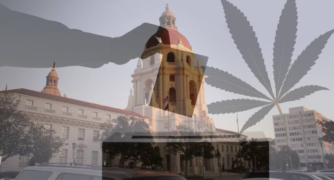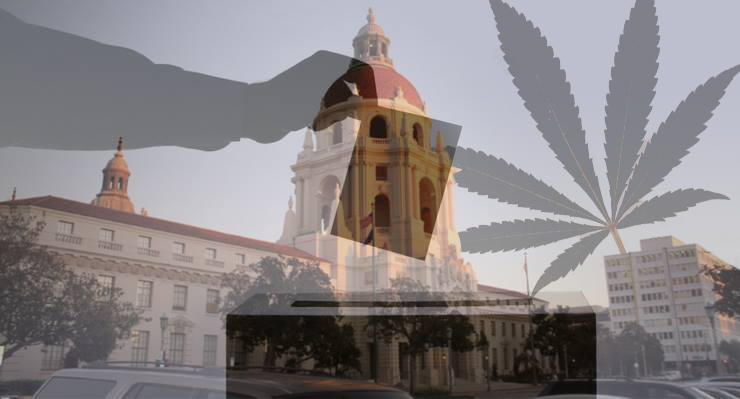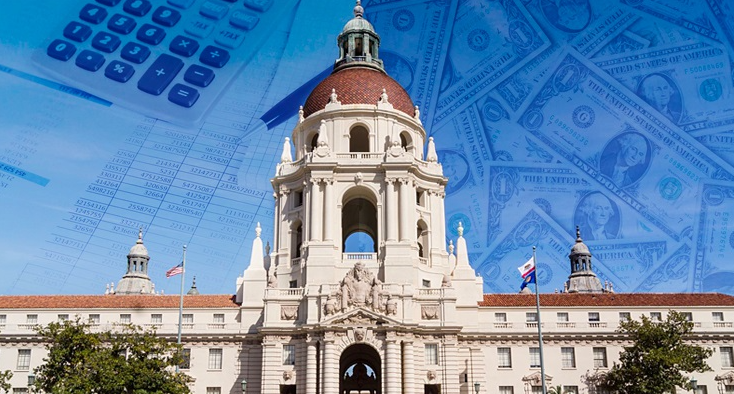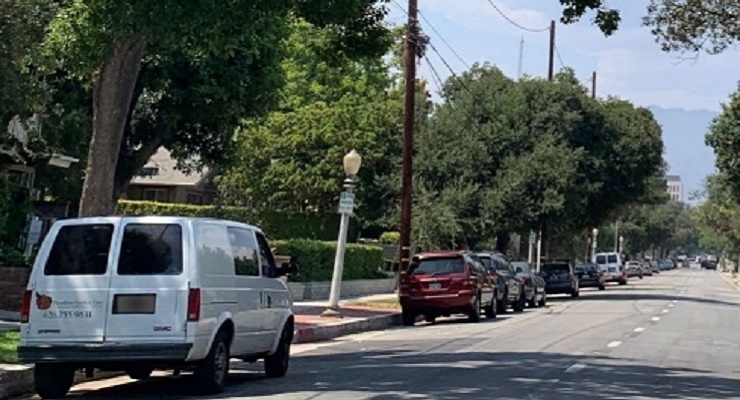A new ballot initiative would allow more cannabis dispensaries to do business in Pasadena.
The People’s Initiative to Establish Local Ownership of Commercial Cannabis Retail Businesses would change the city’s municipal code to allow 11 cannabis licenses, half of which must be social equity applicants and local residents that have been impacted by the war on drugs, which saw Black and Latino arrested and sent to prison for marijuana charges far more than their white counterparts.
Despite those injustices, social equity programs aimed at helping Black and Latino expunge their records and take part in the cannabis industry have faced delays.
“Billionaire Jay-Z’s company has reportedly purchased one of the two operating cannabis stores in Pasadena and the remaining store is owned by a $4 billion company based in Chicago,” said Martin Truitt, who filed an amended copy of the initiative. “I am proposing that at least half of this legal and lucrative $75 million economic opportunity go to qualified Pasadena social equity residents who were affected by the City of Pasadena’s unjust decision to continue criminalizing this activity long after residents voted to legalize it. It was a mistake to hand over this huge opportunity to billionaires instead of Pasadena residents and that mistake needs to be corrected.”
The ballot measure was revised last week. According to election code, City Attorney Michele Bagneris must provide and return to the City Clerk a ballot title for and summary of the proposed measure within 15 days.
After that, organizers of the petition must collect thousands of signatures. If the signatures are certified, the City Council can adopt the measure as an ordinance, submit the ordinance without alteration to the voters, or order a report on the impacts of the initiative for the council within 30 days of the date of certification of the signatures. Following the report, the council can then submit the initiative for a vote, or come up with its own initiative to nullify the other measure.
Local weed
Local residents overwhelmingly approved Measure CC which allowed up to six local dispensaries to operate in Pasadena.
Medmen, Integral, Harvest, Tony Fong, Atrium and Sweetflower finished on top in the city’s expensive and highly competitive process that saw 128 cannabis operators compete.
Medmen was later removed from the process by then-City Manager Steve Mermell. Since that time, only two dispensaries have managed to open.
The process resulted in finger-pointing among applicants and multiple lawsuits by applicants that did not move forward in the process.
Atrium and Sweetflower were initially denied when they attempted to apply for permits in District 3, although that was reversed and Sweetflower was allowed back into the process and Medmen was removed entirely after it was ruled that key personnel in the company had changed since its application was filed.
Integral and Fong have opened and Harvest is preparing to do business also.
More weed
The initiative would open the process even more.
According to the initiative, the city shall issue a cumulative total of 11 retail cannabis permits, half of them to social equity applicants and shall complete the review and scoring application process no later than 120 days after the effective date of the ordinance.
A minimum of fifty percent of all cannabis retail permits issued shall be issued to “Social Equity Applicants.”
New cannabis retail permits shall be issued exclusively to Social Equity Applicants until a threshold of a minimum of fifty (50) percent has been reached. “Equity Applicant” shall mean an Applicant who has at least 50% ownership by an individual person who is a Pasadena resident at the time of application; and was either cited, arrested or convicted after November 5, 1996, and before December 31, 2019, for the sale of cannabis alleged to have been committed in Pasadena, California or was cited, arrested or convicted for the possession of cannabis after November 5, 1996 and before December 31, 2019 and has a median household income lower than the 2020 City of Pasadena average as determined by the US Census.
Some interest
Truitt said he is hopeful that a ballot measure will not be necessary and that the Pasadena City Council will move forward itself to establish a social equity licensing program.
The City Council expressed interest in a social equity program last year when a split council voted to increase the number of cannabis operators that can operate in District 3.
At that time, Councilmember John Kennedy who represents neighborhoods in District 3 took a stand for social equity.
“We are here today and we are not even discussing social equity, but you are willing to put three dispensaries in District 3 without social equity,” said Kennedy. “It’s discriminatory. No African Americans or Latinos are in the queue to receive a license.”
The council agreed to hold a discussion on a social equity program in April. On Tuesday Vice Mayor Andy Wilson told Pasadena Now he was still interested in a discussion on the topic.
“I am in favor of exploring best practices [on] social equity and see if some of them might make sense in Pasadena,” Wilson said. “It is concerning when a ballot initiative circumvents the more systematic (though often slow!) policymaking of a legislative body — that being said I haven’t yet seen an analysis of what is being proposed.”
Nixon’s war
The initiative could be one of the first in the state to give deference to people arrested in the nation’s War on Drugs which began under President Richard Nixon in 1971.
Nixon used the popular policy to vilify antiwar advocates and young Black people, two groups that strongly opposed him, according to John Ehrlichman who served as Nixon’s counsel and was an assistant to the president on domestic affairs.
“We knew we couldn’t make it illegal to be either against the war or Black, but by getting the public to associate the hippies with marijuana and Blacks with heroin, and then criminalizing both heavily, we could disrupt those communities,” he told Harper’s Magazine in 1994. “We could arrest their leaders, raid their homes, break up their meetings, and vilify them night after night on the evening news. Did we know we were lying about the drugs? Of course we did.”
By the early 1980s, President Ronald Reagan signed the Comprehensive Crime Control Act in 1984, which established mandatory minimum sentences and expanded other penalties.
“The illegal drug trade is the source of violent crime in Pasadena,” Truitt said. “From a public policy perspective, we need to immediately act to replace Pasadena’s still existing illegal marijuana market with a locally owned and regulated system that protects public health and safety.”














 1 comment
1 comment



